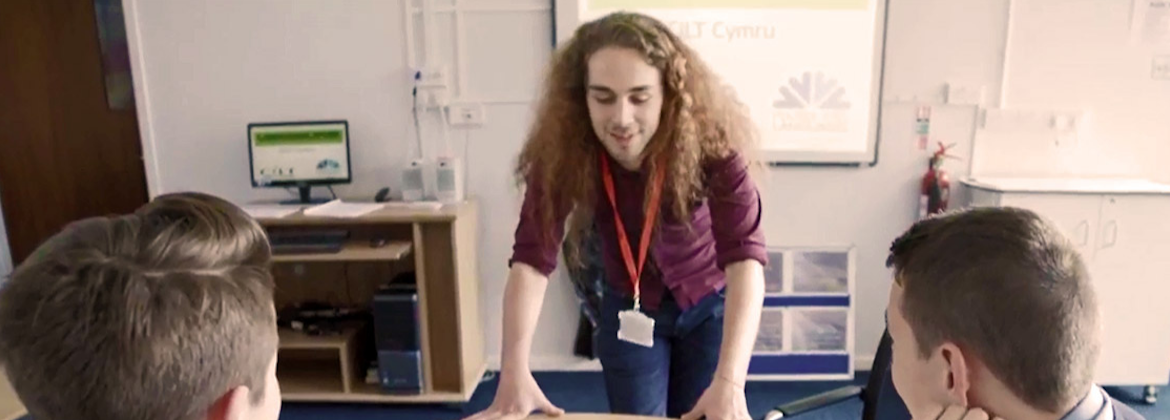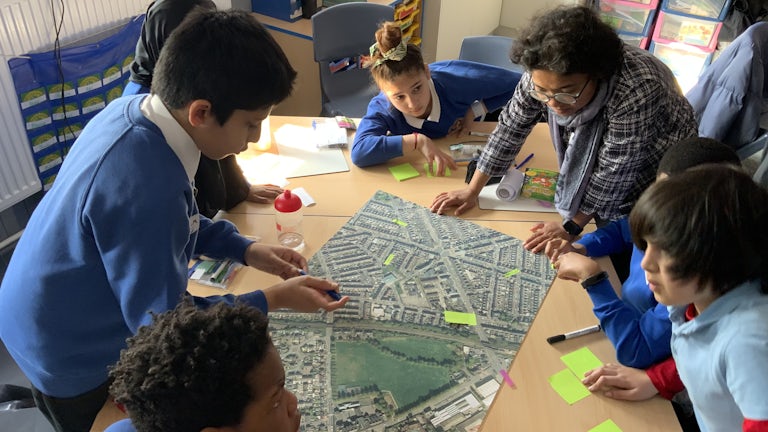
Building international languages in Welsh primary schools
Helping teachers across Wales to introduce the new curriculum.
Under the new curriculum in Wales, all primary schools must deliver international languages from Year 5 (10-11 year old).
This will be a big step-change for teachers, many of whom do not have experience or confidence in teaching international languages. The COVID-19 pandemic has added to this challenge, meaning school preparation for the new curriculum has been substantially delayed, as planning time has had to be re-purposed to deliver remote learning.
To support teachers across Wales to deliver the new curriculum, a team from our School of Modern Languages have created free toolkit of teaching resources, including thematic modules and a pedagogical guide on how to deliver them in line with the new Curriculum for Wales.

The challenges of the COVID-19 pandemic have left teachers with less time to prepare for the new curriculum.
A positive experience of language learning
The introduction of international language learning from Year 5 onwards is an opportunity to promote languages, cultures and the growth of an outward-looking international mindset in young people in Wales. There are clear economic and social advantages in building a more global outlook for young people, especially in more disadvantaged communities.
“Our ambition is to maintain and expand our promotion of Modern Languages at all levels,” says project lead Dr Liz Wren-Owens. “In promoting languages at primary level, we want to engender a positive experience of language learning at an early stage, which will feed into the pipeline of languages uptake at GCSE and beyond.”
“As a school governor at a primary school, and as a languages advocate, I’m very aware that there is the will to develop languages teaching,” says Dr Wren-Owens. “But there just wasn’t the time for teachers to develop the resources or, more importantly, the confidence to deliver them.”

Some of the International Languages Superheroes characters created for the toolkit.
Giving teachers the tools they need
The project team have worked with four regional educational consortia across Wales, and with pilot schools in each region, to develop a set of resources that will give primary teachers the tools and support they need to deliver international languages learning to their pupils.
One of the key aims is to make the resources easily accessible by teachers, and easy to use.
“We wanted to produce a toolkit that would be a one-stop shop,” says Dr Wren-Owens. “There are lots of individual resources available on the internet. But what we wanted to provide was a comprehensive package that teachers could follow, lesson by lesson.”
The toolkit contains lessons and activities to do in the classroom – but, importantly, it also includes a pedagogical guide on how to deliver the lessons and activities in line with the Curriculum for Wales. This will be a help to teachers who have not previously taught international languages.

The toolkit will also form part of the training for our Student Language Ambassadors Scheme, which sees students delivering sessions in local schools.
Plans for the future
The project team hopes that the resources will see a long-term benefit for secondary schools and universities, as pupils become more excited by and confident with modern languages.
The toolkit will also form a part of the training for our Student Language Ambassadors scheme.
“The scheme trains university students from Welsh universities to deliver language and career sessions for pupils in secondary schools, encouraging them to make the most of languages and to think about the potential of languages in the next stages of their studies,” says Meleri Jenkins, Routes into Languages project co-ordinator. “Our aim is to embed the primary toolkit into the training programme for future cohorts of Student Language Ambassadors.”
This may help the consistent decline in take-up for modern languages at GCSE and A Level, which makes recruitment for undergraduate programmes extremely challenging.

Our local community projects
We use our wide range of expertise to support and deliver impactful community led projects alongside student and staff volunteers.




